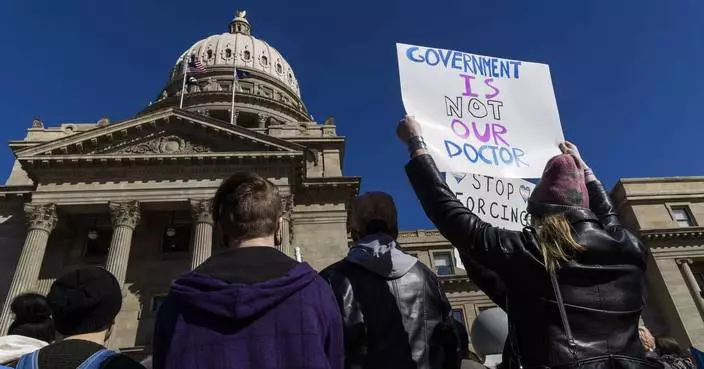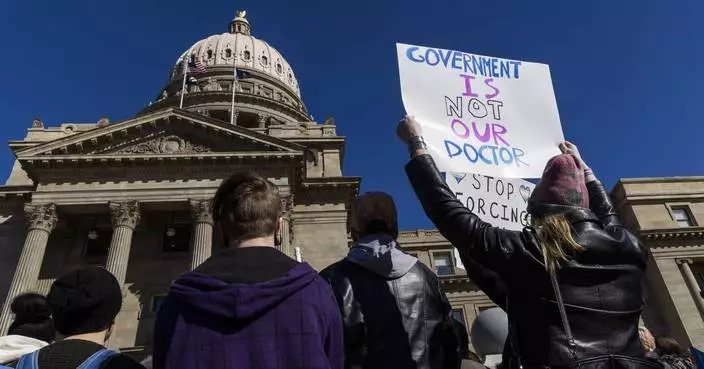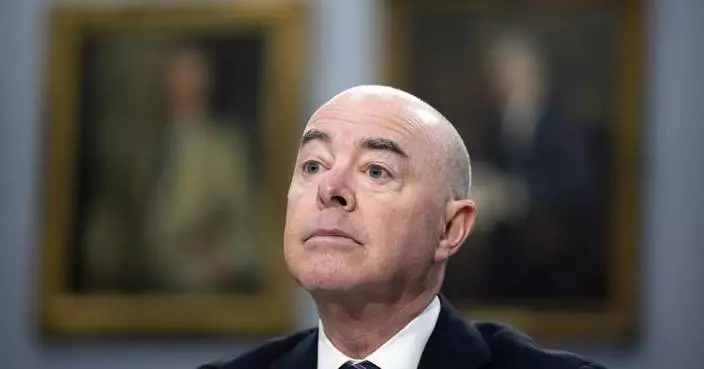Scarlett Johansson on Friday withdrew from the film "Rub & Tug" after her plans to portray a transgender man prompted a backlash.
In a statement to Out.com on Friday, Johansson said she's pulling out from the project "in light of recent ethical questions raised surrounding my casting." Last week, Johansson said she would star as Pittsburgh 1970s and '80s prostitution ring leader Dante "Tex" Gill, who was born Lois Jean Gill but identified as a man.

In this April 23, 2018 file photo, Scarlett Johansson arrives at the world premiere of "Avengers: Infinity War" in Los Angeles. (Photo by Jordan Strauss/Invision/AP, File)
When transgender actors and advocates questioned the casting, Johansson initially responded with a statement that criticism "can be directed to Jeffrey Tambor, Jared Leto and Felicity Huffman's reps." All are cisgender actors who won acclaim for playing transgender characters.
"Our cultural understanding of transgender people continues to advance, and I've learned a lot from the community since making my first statement about my casting and realize it was insensitive," said Johansson, who added that she had "great admiration and love for the trans community."

This 1979 photo shows transgender man Dante "Tex" Gill, flanked by masked Frank Cocchiara, left, and Donna Potts while leaving the Public Safety Building in Pittsburgh, Pa. Actress Scarlett Johansson has pulled out of the film “Rub & Tug” after her plans to portray Gill prompted a backlash. (Pittsburgh Post-Gazette via AP)
"While I would have loved the opportunity to bring Dante's story and transition to life, I understand why many feel he should be portrayed by a transgender person, and I am thankful that this casting debate, albeit controversial, has sparked a larger conversation about diversity and representation in film," the actress added.
Johansson previously came under fire for playing an originally Asian character in the 2017 film "Ghost in the Shell." That film's director, Rupert Sanders, was set to also helm "Rub & Tug."
It's not clear if the film, which Johansson was also producing, will go forward. A representative for Johansson didn't respond to an email Friday. A spokesman for New Regency, which was set to produce "Rub & Tug," said it's uncertain what will happen with the film.
Some critics have argued that trans roles should be played by trans actors. Last week, numerous trans actors responded to Johansson's casting as another sign of a lack of opportunity for trans actors.
"Actors who are trans never even get to audition for anything other than roles of trans characters," Jamie Clayton, a transgender actress who stars in Netflix's "Sense8." ''That's the real issue. We can't even get in the room."
Jen Richards, trans activist and creator of the web series "Her Story," praised Johansson for stepping down.
"If you're tired of hearing about it, you can't imagine how tired trans actors are of talking about it," Richards said on Twitter. "We just want to work. And with more trans and nonbinary people, of all kinds, participating, the work will be a better and richer representation of our world. This is a win."
GLAAD, formerly known as the Gay & Lesbian Alliance Against Defamation, said in a statement: "Scarlett Johansson's announcement, together with the transgender voices who spoke out about this film, are game changers for the future of transgender images in Hollywood."
The rights of LGBTQ+ students will be protected by federal law and victims of campus sexual assault will gain new safeguards under rules finalized Friday by the Biden administration.
The new provisions are part of a revised Title IX regulation issued by the Education Department, fulfilling a campaign pledge by President Joe Biden. He had promised to dismantle rules created by former Education Secretary Betsy DeVos, who added new protections for students accused of sexual misconduct.
Notably absent from Biden’s policy, however, is any mention of transgender athletes.
The administration originally planned to include a new policy forbidding schools from enacting outright bans on transgender athletes, but that provision was put on hold. The delay is widely seen as a political maneuver during an election year in which Republicans have rallied around bans on transgender athletes in girls' sports.
Instead, Biden is officially undoing sexual assault rules put in place by his predecessor and current election-year opponent, former President Donald Trump. The final policy drew praise from victims' advocates, while Republicans said it erodes the rights of accused students.
The new rule makes “crystal clear that everyone can access schools that are safe, welcoming and that respect their rights," Education Secretary Miguel Cardona said.
“No one should face bullying or discrimination just because of who they are, who they love,” Cardona told reporters. “Sadly, this happens all too often.”
Biden's regulation is meant to clarify schools’ obligations under Title IX, the 1972 sex discrimination law originally passed to address women’s rights. It applies to colleges and elementary and high schools that receive federal money. The update is to take effect in August.
Among the biggest changes is new recognition that Title IX protects LGBTQ+ students — a source of deep conflict with Republicans.
The 1972 law doesn’t directly address the issue, but the new rules clarify that Title IX also forbids discrimination based on sexual orientation or gender identity. LGBTQ+ students who face discrimination will be entitled to a response from their school under Title IX, and those failed by their schools can seek recourse from the federal government.
Many Republicans say Congress never intended such protections under Title IX. A federal judge previously blocked Biden administration guidance to the same effect after 20 Republican-led states challenged the policy.
Rep. Virginia Foxx, a Republican from North Carolina and chair of the House Education and the Workforce Committee, said the new regulation threatens decades of advancement for women and girls.
“This final rule dumps kerosene on the already raging fire that is Democrats’ contemptuous culture war that aims to radically redefine sex and gender,” Foxx said in a statement.
In the last few years, many Republican-controlled states have adopted laws restricting the rights of transgender children, including banning gender-affirming medical care for minors. And at least 11 states restrict which bathrooms and locker rooms transgender students can use, banning them from using facilities that align with their gender identity.
But the rule makes clear that treating transgender students differently from their classmates is discrimination, putting the state bathroom restrictions in jeopardy, said Francicso M. Negron Jr., an attorney who specializes in education law.
The revision was proposed nearly two years ago but has been slowed by a comment period that drew 240,000 responses, a record for the Education Department.
Many of the changes are meant to ensure that schools and colleges respond to complaints of sexual misconduct. In general, the rules widen the type of misconduct that institutions are required to address, and it grants more protections to students who bring accusations.
Chief among the changes is a wider definition of sexual harassment. Schools now must address any unwelcome sex-based conduct that is so “severe or pervasive” that it limits a student's equal access to an education.
Under the DeVos rules, conduct had to be “severe, pervasive and objectively offensive," a higher bar that pushed some types of misconduct outside the purview of Title IX.
Colleges will no longer be required to hold live hearings to allow students to cross-examine one another through representatives — a signature provision from the DeVos rules.
Live hearings are allowed under the Biden rules, but they're optional and carry new limits. Students must be able to participate from hearings remotely, for example, and schools must bar questions that are “unclear or harassing.”
As an alternative to live hearings, college officials can interview students separately, allowing each student to suggest questions and get a recording of the responses.
Those hearings were a major point of contention with victims' advocates, who said it forced sexual assault survivors to face their attackers and discouraged people from reporting assaults. Supporters said it gave accused students a fair process to question their accusers, arguing that universities had become too quick to rule against accused students.
Victims' advocates applauded the changes and urged colleges to implement them quickly.
“After years of pressure from students and survivors of sexual violence, the Biden Administration’s Title IX update will make schools safer and more accessible for young people, many of whom experienced irreparable harm while they fought for protection and support,” said Emma Grasso Levine, a senior manager at the group Know Your IX.
Despite the focus on safeguards for victims, the new rules preserve certain protections for accused students.
All students must have equal access to present evidence and witnesses under the new policy, and all students must have equal access to evidence. All students will be allowed to bring an advisor to campus hearings, and colleges must have an appeals process.
In general, accused students won't be able to be disciplined until after they're found responsible for misconduct, although the regulation allows for “emergency” removals if it's deemed a matter of campus safety.
The American Council on Education, which represents higher education institutions, praised the new guidelines. But the group criticized the Aug. 1 compliance deadline. The timeline "disregards the difficulties inherent in making these changes on our nation’s campuses in such a short period of time,” ACE said in a statement.
The latest overhaul continues a back-and-forth political battle as presidential administrations repeatedly rewrite the rules around campus sexual misconduct.
DeVos criticized the new rule, writing on social media site X that it amounts to “ an assault on women and girls." She said the new procedures for handling sexual assault accusations mark a return to "days where sexual misconduct was sent to campus kangaroo courts, not resolved in a way that actually sought justice,” she wrote.
Associated Press writers Geoff Mulvihill, Annie Ma and Moriah Balingit contributed to this report.
The Associated Press’ education coverage receives financial support from multiple private foundations. AP is solely responsible for all content. Find AP’s standards for working with philanthropies, a list of supporters and funded coverage areas at AP.org.
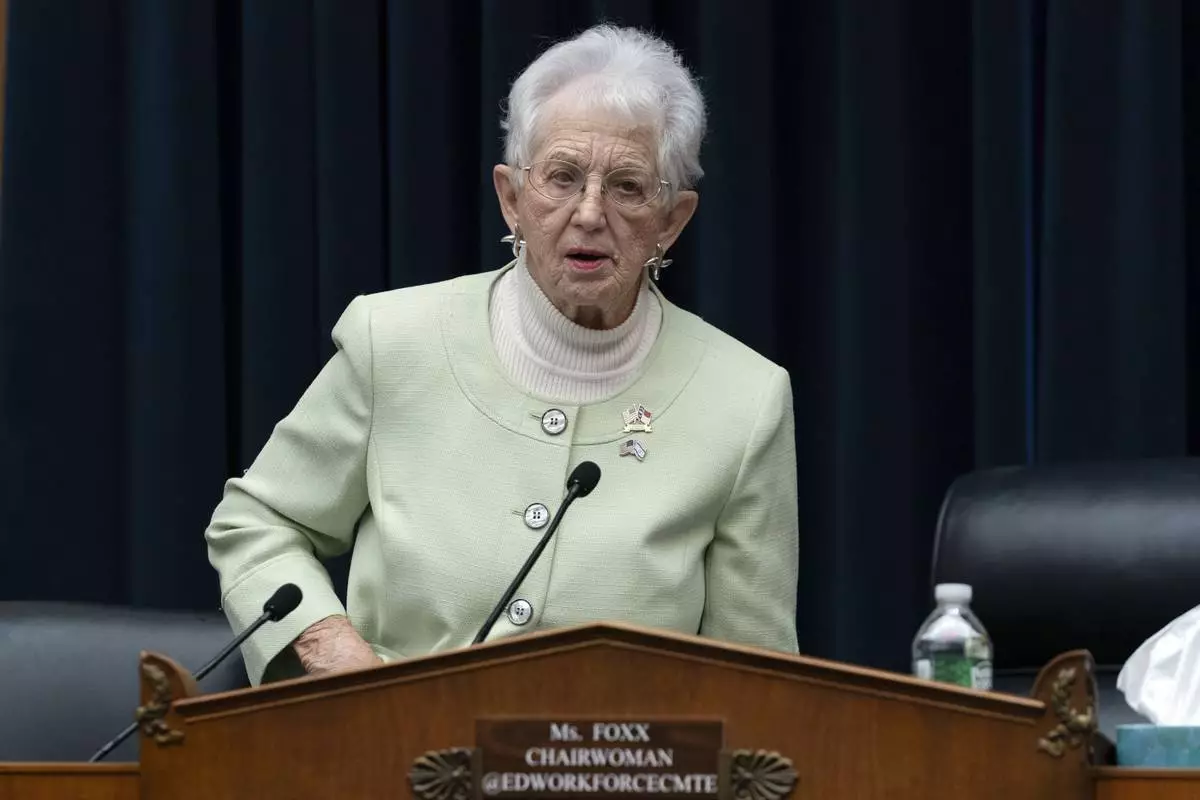
FILE - House Education and the Workforce Committee Chair Rep. Virginia Foxx R-N.C., speaks on Capitol Hill in Washington, April 17, 2024. The rights of LGBTQ+ students will be protected by federal law and victims of campus sexual assault will gain new safeguards under rules finalized Friday, April19, 2024, by the Biden administration. Foxx said the new regulation threatens decades of advancement for women and girls. (AP Photo/Jose Luis Magana, File)
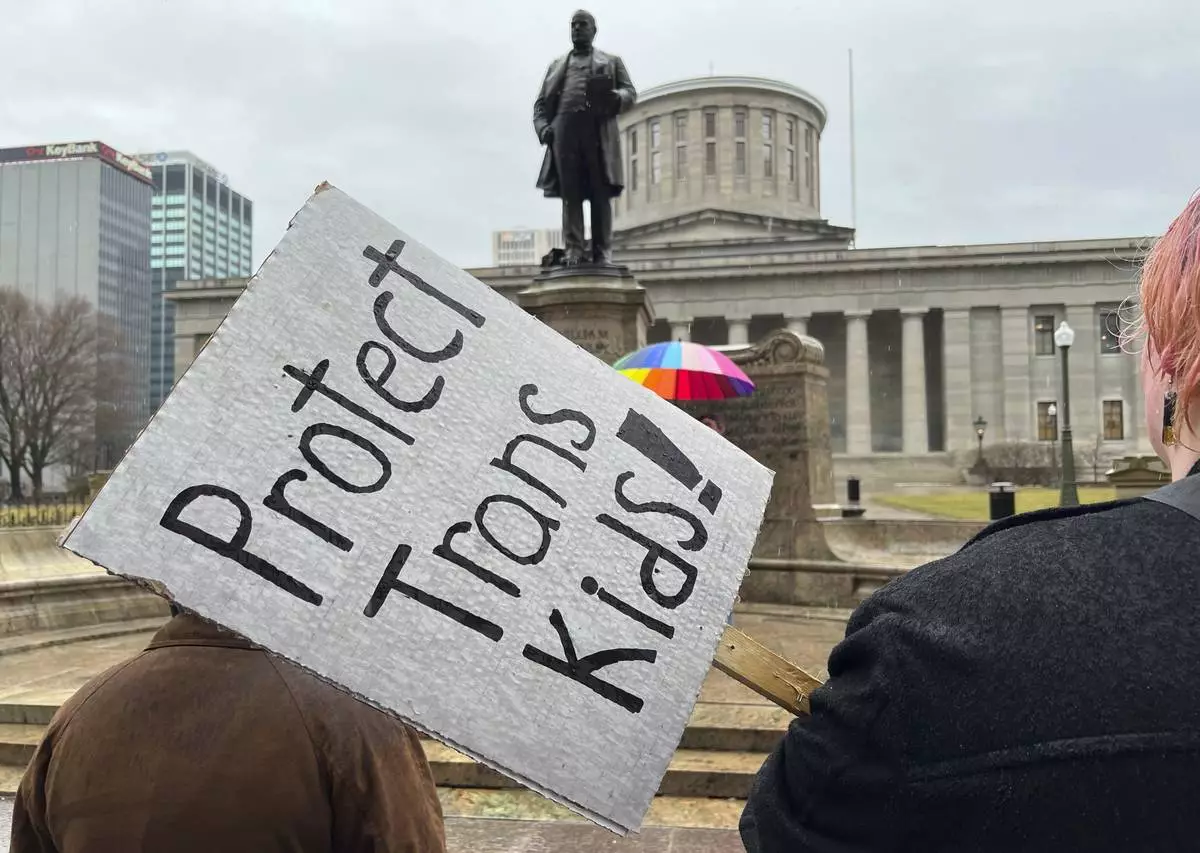
FILE - Demonstrators advocating for transgender rights and healthcare stand outside of the Ohio Statehouse on Jan. 24, 2024, in Columbus, Ohio. The rights of LGBTQ+ students will be protected by federal law and victims of campus sexual assault will gain new safeguards under rules finalized Friday, April19, 2024, by the Biden administration. Notably absent from Biden’s policy, however, is any mention of transgender athletes. (AP Photo/Patrick Orsagos, File)









